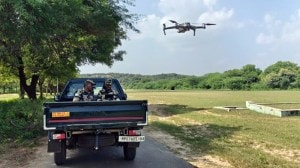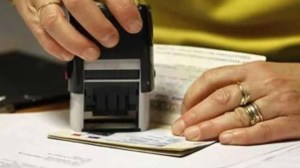Soon, IAF recruitment in your town, your language
Pamphlets and posters in hand, the IAF is brushing up on its regional language skills as it looks for a few good men.Worried at not getting ...

Pamphlets and posters in hand, the IAF is brushing up on its regional language skills as it looks for a few good men.
Worried at not getting adequate airmen in its recruiting drives, the IAF brushed up on Kannada, Tamil, Marathi, Gujarati and a few other languages, printed a few brochures and has now set out into the hinterland looking for eligible men.
A first of sorts — moving away from the usual bi-lingual approach — they are hoping to fill up a nearly 17,000 airmen and 1,600 officer shortage in the IAF. This comes with a set of new policy decisions to ensure officers and airmen have greater chances of rising up the ranks than earlier.
‘‘On an average we induct nearly 5,000 airmen every year. Starting this year we plan to raise the intake to 7,000 fresh recruits every year,’’ said Air Marshal Narayanan Menon, air officer in charge of personnel.
For Air Force officers, the recent policy decisions announced by Air Headquarters promises quicker and merit-based promotions as well as more vacancies in higher ranks. ‘‘Earlier it would take 23 years for a wing commander to pick up his Group Captain’s rank, now we have reduced it to 21,’’ said Menon. They are also seeking more vacancies in the higher ranks where promotions will be merit-based to let ‘‘young officers serve longer’’.
For airmen, the IAF has charted out a smoother take-off into higher ranks by reducing the minimum qualifying ranks as well as remove promotional disparity between different trades and groups.
Also proposed is making the trades picked up by airmen recognised by the All India Council for Technical Education. ‘‘Here they are working on some of the most complicated technologies while maintaining the aircraft. This will be recognised by the industry when they retire and look for employment,’’ said IAF authorities.
Unlike the Army which has a regional recruiting policy, the Air Force picks up its men from a central merit list. With numbers going down, the IAF will now go into states with better language skills and promotional material in regional languages hoping that the youth give their traditional employment a miss and sign up.
Photos





- 01
- 02
- 03
- 04
- 05


























